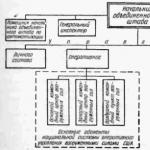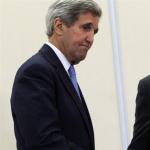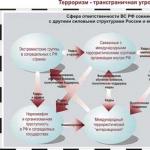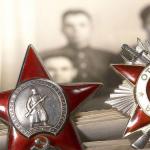Einstein was the author of more than 300 scientific papers, wrote 150 books and articles, was an honorary doctor of about 20 leading universities, including the USSR Academy of Sciences. The theoretical physicist Albert Einstein, one of the founders of modern theoretical physics, was very imposing.
Offer to be President of Israel
In 1952, Albert Einstein was offered the presidency of Israel. But he refused. Einstein explained his decision by his lack of experience and ability to work with people. Albert Einstein supported Israel, the scientist always defended the rights of all oppressed peoples.
Albert Einstein loved women
The first wife was Mileva Marich, who was terribly jealous of other women, but this did not stop Einstein. In parallel, he began dating his future second wife. The second life partner was his cousin Elsa Lowenthal. She was older and had already been married before. Albert Einstein was then a famous scientist and took other women to the house for the night. But this was perceived by Elsa Lowenthal condescendingly. She served him coffee in the morning.
Einstein refused to save his life
On April 17, 1955, Einstein experienced abdominal aortic aneurysms, which could lead to internal bleeding. He was offered an operation, but Einstein refused artificial life extension. When the time came, he wanted to leave nice and natural. He died the next day.
The brain and eyes of Albert Einstein
7 hours after his death, during a standard autopsy procedure, Dr. Thomas Stoltz Harvey removed his Albert Einstein brain. Thomas Stolz kept it for himself, despite the disagreement of his relatives. After that, he lost his job and sent pieces of a slice of the brain to scientists for research. He did not sell the brain, despite the offers, but donated parts of the sections to scientists. In addition, Einstein's ophthalmologist Henry Abrams secretly cut out his eyes. This became known only in 1993. They are stored in a safe in New York to this day. Master Yoda from Star Wars has Einstein's eyes.
Albert Einstein with Nobel Prize and Leonardo DiCaprio with Oscar
Einstein's work on his famous theory of relativity did not win him the Nobel Prize. The story of Albert Einstein's Nobel Prize is reminiscent of Leonardo DiCaprio's Oscar story. Einstein was repeatedly nominated for the Nobel Prize in Physics, almost every year. But his ideas were very revolutionary and the members of the prize all doubted. But a diplomatic move was found. In 1921, the prize was awarded to Einstein for the theory of the photoelectric effect, as well as "... and for other works in the field of theoretical physics." All the money from the prize went to the first wife and children, as he promised her.

Albert Einstein's main passion was not science
Einstein's main passion was not science. He couldn't imagine his life without music. He enjoyed music and the violin the most. Albert Einstein always traveled with a violin. This was his main passion and joy.
March 14 marks the 140th anniversary of the birth of the brilliant physicist, Nobel laureate Albert Einstein, whose famous theory of relativity was first published on March 20, 1916. And these two dates allow us to recall again the great scientist and his inseparable connection with the young Jewish state.
Albert Einstein in 1921. Photo: Wikipedia
As you know, once Einstein received an offer from Israeli Prime Minister David Ben-Gurion to become the second president of Israel. This happened in 1952 after the death of the first president, Chaim Weizmann. The scientist rejected the proposal, citing the lack of experience in government activities. “I am deeply moved by the offer of the State of Israel, but with regret and regret I must reject it,” he wrote in response.
Among biographers of Einstein there is no single position as to whether the scientist supported the ideas of Zionism. Let's leave it to him to answer this question:
“Until recently, I lived in Switzerland, and while I was there, I did not realize my Jewishness ...
When I arrived in Germany, I first learned that I was a Jew, and it was more non-Jews than Jews who helped me make this discovery ... Then I realized that only a common cause, which will be dear to all Jews in the world, can lead to the revival of the people ...
If we did not have to live among intolerant, soulless and cruel people, I would be the first to reject nationalism in favor of universal humanity.
One thing is certain: the great scientist supported the development of education in Eretz Israel and later in the State of Israel with all his might.
Develop education and science in Eretz Israel

Albert Einstein and his wife Elsa Einstein as part of the Zionist delegation to the United States in 1921. In the photo also: the future President of Israel Chaim Weizman, his wife Vera Weizman, Menahem Ussishkin and Ben-Zion Mosinzon. Photo: Wikipedia
Einstein is associated with at least two Israeli universities. We are talking about the Hebrew University in Jerusalem and the Haifa Technion.
Albert Einstein, along with Sigmund Freud and Martin Buber, was among the co-founders of the Hebrew University.
For the first and only time, Albert Einstein set foot on the land of Eretz Israel in February 1923. His arrival was associated with the laying of the first stone of the future metropolitan university on Mount Scopus. At the same time, according to the recollections of eyewitnesses, the scientist gave his first lecture at the Hebrew University. More precisely, at the construction site where the campus will subsequently be erected. The lecture on the theory of relativity was given in French. Years later, Einstein bequeathed all of his letters and manuscripts, as well as the copyright to use his name and likeness, to the Hebrew University.
On that only visit to Palestine, Einstein also visited Haifa, where the construction of the future Technion University of Technology was unfolding at that time. And here the great scientist left his mark: in memory of his visit to the Technion on February 11, 1923, he planted a palm tree.

Einstein statue at the Israeli Academy of Sciences. A copy of the monument to Robert Burks (Square at the US National Academy of Sciences, Washington). Photo: Wikipedia
Einstein: Israel in the soul and in the heart
The tradition of planting trees at the Technion was continued by the son of the great scientist, also a physicist Hans Einstein. In 1956, having attended the opening ceremony of the A. Einstein Institute of Physics at the Technion, he planted two cypress trees at the entrance. However, not only trees marked the presence of Einstein in the Technion. The main thing is the close scientific and social ties that developed between Einstein and this educational institution. Einstein contributed a lot to attracting specialists to the Technion. In particular, this concerned scientists of Jewish origin who left Germany after Hitler came to power and moved to Palestine. The scientist himself headed the Society of Friends of the Technion, and after moving to the United States, he attracted prominent American scientists, engineers and philanthropists to cooperate. Einstein also contributed a lot to raising funds for the Technion and supplying the necessary equipment and apparatus for laboratories. Now the Institute of Physics. A. Einstein Technion is one of the leading scientific institutions in the world.
The great scientist never managed to visit Israel, although at the end of the 40s he sought to come to the young Jewish state, but for personal reasons he never realized this dream of his.
Albert Einstein is a person who has been of interest to both people of science and ordinary people for more than 100 years. Peaceful coexistence, the prohibition of nuclear weapons, the fight against war propaganda - these questions occupied Einstein in the last years of his life no less than physics. His interpretation of the universe is no longer a threat to religious organizations, he continues to be a model of the human mind, and also inspires new achievements. the site has selected for you little-known facts from the life of an outstanding scientist, which will help you to better understand his outstanding personality.
1) In 1952, Israeli Prime Minister David Ben-Gurion offered Albert Einstein the position of the country's president. This happened immediately after the death of Chaim Weizmann, who symbolically ruled the country as president. In Israel, the Knesset appoints the President by a vote. The position itself to this day remains more official than managerial. The offer to become President of Israel Albert was incredibly touched, but he flatly refused such a development of events.
Ben Gurion Offered Einstein the President of Israel

2) Albert's relationship with the female sex has always been "on top", this fact was especially confirmed after the publication of a number of personal letters in 2006, which were written by him during his second marriage to his own cousin. We cannot find the names of all his mistresses, since Einstein often used initials or symbols instead of names in his appeals to them.
However, it is reliably known that during his second marriage he had at least six major novels, a slight intrigue with his secretary and a love relationship with socialite Ethel Michanovski. The latter, by the way, pursued physics so aggressively that Albert had to hide from her. In addition, records were found in Einstein's letters, where he admitted that he was not indifferent to his stepdaughter.
Einstein had 6 major romances during his second marriage.
It is also worth noting his non-trivial approach to smoothing problems: Einstein managed to end his first marriage with a divorce by mutual desire, promising his first wife a serious amount of money, which he simply did not have at that time. Nevertheless, he assured her that he would soon receive the Nobel Prize and the fee that was due to her, he would give to his ex-wife.
3) Many lazy people justified their failures in the study of the exact sciences with an unverified fact about Albert, who allegedly somehow failed his exam in mathematics. But in fact, nothing like this ever happened. Einstein even personally commented on this: “I never failed my math exams. At the age of 14, I successfully mastered the calculation of differential equations and integrals. But after graduating from college, Albert really could not get a job at the academy, which is why he worked for a long time at the "Swiss Patent Office".
Einstein never failed a math exam
4) Einstein was expelled from the Manhattan Project, of which he was a co-author. A pacifist in life and beliefs, Albert signed a letter to Roosevelt, handwritten by Leo Gilard in 1939. The letter announced that the Nazis had begun studying uranium and developing nuclear weapons based on nuclear fission. It is noteworthy that this scientific process was possible thanks to Einstein's primary research and his formula E=mc (2). Leo Gilard, on behalf of a group of scientists, demanded that Roosevelt urgently begin similar studies on the part of the United States.
This letter is still considered the start of the "Manhattan Project" - the program during which the atomic bombs were created, dropped in 1945 on Japan. But in 1940, the FBI suspected Einstein of links with US communist groups and did not allow him to take further part in secret government developments. It's funny that the FBI file also found information about the statement of the "Women's Patriotic Corporation", accusing Einstein of hiding anarchist ideals in order to "introduce confusion and confusion" of his theory of relativity, which "has nothing to do with any practical science."
Einstein believed in a god or creator
5) Einstein believed in a god or a creator. He always advocated "for its existence." Albert felt that science, in its essence, leads to the knowledge of the "religious sense of the world." And even though God was a faceless character for him, Einstein was sure that the incredible symmetry of the universe could not be a “random” event. In his letter to Max Born, he wrote: “The theory (of relativity) explains a lot, but does not bring us any closer to the secret of the OLD MAN. I am convinced that He did not throw the dice."
Before World War II, speaking at a Manhattan hotel where 3,000 people celebrated the Passover Seder, Einstein declared that he was against the creation of a Jewish state. “My understanding of the essence of Judaism opposes the idea of a Jewish state with borders, an army and secular power,” he said. “I fear the destruction of Judaism from within, especially because of the growth of narrow-minded nationalism in our ranks. We are no longer Jews of the time of the Maccabees” 40 .
After the war, his position did not change. In 1946, Einstein testified in Washington before an international committee examining the situation in Palestine. He condemned the British, who pitted Jews and Arabs, called for more Jewish immigration, but denied Jewish nationalism. “The idea of statehood does not resonate in my heart,” he said in a low voice that sounded like a bolt from the blue in an audience of shocked Zionist ardent supporters. “I cannot understand why this is necessary” 41 . Rabbi Steven Weiss, struck by Einstein's public break with the true Zionists, persuaded him to sign a statement explaining his position. But this statement did not bring any clarity.
Einstein was particularly concerned about the military methods employed by Menachem Begin and other Jewish military leaders. He joined with Sidney Hook, who sometimes turned out to be his opponent, and signed a petition published in The New York Times, where Begin was assessed as a "terrorist, strongly reminiscent" of the Nazis 42 . The use of force was contrary to Jewish tradition. “We are copying the stupid nationalism and racial nonsense of the goyim,” Einstein wrote to a friend in 1947.
But when the State of Israel was announced in 1948, Einstein wrote to the same friend that his position had changed. “For economic, political and military reasons, I never considered the idea of the state to be correct,” he admitted. “But now there is no way back, and we must fight for it” 43 .
The establishment of the State of Israel forced him once again to retreat from the pure pacifism to which he had previously been committed.
“One can only regret that we have to use methods that we consider repulsive and stupid,” he wrote to a group of Jews from Uruguay, “but in order to achieve better conditions in the international arena, we must first of all support this experiment with all the means available to us” 44 .
Chaim Weizmann, the die-hard Zionist who brought Einstein to America in 1921, became Israel's first president in a prestigious but rather honorary position, since power is concentrated in the hands of the prime minister and his cabinet. When Weizmann died in November 1952, a Jerusalem newspaper launched a campaign calling for Einstein to be elected to his place. Prime Minister David Ben-Gurion succumbed to the pressure, and word quickly spread around the world that such an offer to Einstein would be made.
This idea was, on the one hand, incredible, on the other hand, obvious, but, moreover, impractical. Einstein first learned about this a week after Weizmann's death from an article in The New York Times. At first, both he himself and the women who lived in his house simply laughed, but then the calls from reporters began. "It's all very awkward, very awkward," he told visitors. A few hours later, a telegram arrived from Abba Eban, Israel's ambassador to Washington. He asked if the embassy could send an official representative to him tomorrow.
“Why would a man go all this way,” complained Einstein, “if I just say no?”
Helen Ducas came up with the idea of just calling Ambassador Eban on the phone. In those days, long-distance telephone calls that were not arranged in advance were new. To Doukas' surprise, she was able to find Eban in Washington DC and connect him with Einstein.
“I'm not up to it, and I probably won't be able to do it,” Einstein said.
“I can't just tell my government that you called and said no,” Eban replied. “I have to complete all the formalities and make you an offer officially.”
In the end, Eban sent a representative who handed Einstein an official letter asking him if he would agree to become president. “Accepting this offer would entail moving to Israel and obtaining Israeli citizenship,” Eban's letter noted (perhaps in case Einstein had the fantastic idea that he could lead Israel from Princeton). However, Eban was quick to assure Einstein: "The government and the people are fully aware of the extreme importance of your work and will ensure that you can continue your great scientific work without hindrance." In other words, a job was offered that required only his presence and, in fact, nothing else.
Although this proposal seemed somewhat strange, it clearly showed how strong was the reputation of Einstein as a hero of world Jewry. This sentence “represents the deepest respect that the Jewish people can give to one of their sons,” wrote Eban.
By the time Eban's envoy arrived, Einstein had already prepared a statement resigning from this post. “I have been a lawyer all my life,” the guest joked, “but I have never been refuted before I had the opportunity to present the case.”
He is “deeply moved” by the offer, Einstein wrote in a prepared letter, and “at the same time saddened and embarrassed” because he does not accept it. “All my life I've dealt with objective reality, so I don't have either the natural inclination or the proper experience of dealing with people and fulfilling the duties of an official,” he explained. “These circumstances upset me even more, since my belonging to the Jewish people became for me the strongest social bond, when I realized with absolute clarity how precarious our position among other peoples of the world is” 45 .
The idea of asking Einstein to become the president of Israel was a reasonable one, but Einstein was right, too, because he understood that sometimes even the most brilliant idea can turn out to be very bad. As he noted with his usual self-irony, he had no natural inclination to behave with people in the way that this role required, and his temperament did not suit the official functionary. He was not intended for the role of a politician, nor for the role of an official.
He liked to say what he thought, he did not have the habit of compromise necessary to lead or simply be the symbolic head of a complex organization. Previously, when he nominally led the Hebrew University campaign, he had neither the talent needed to lead the process nor the inclination to ignore the tricks of other actors. Similarly, he had an unpleasant experience with the team building Brandeis University near Boston, which led him to withdraw from the project 46 .
In addition, he has never demonstrated the ability to control anything. His only formally administrative responsibility was to direct the new physics institute at the University of Berlin. In this position, he did little other than hire his stepdaughter to work in the office and provide work for an astronomer who was trying to confirm his theories.
The strength of Einstein's intellect comes from his rebelliousness and non-conformism, from his disgust at any attempt to restrict his freedom of expression. Is there anything worse for a politician who should be a peacemaker? As he explained in a polite letter to one of the Jerusalem newspapers that endorsed his candidacy, he did not want to face a situation where he had to follow a government decision that "might conflict with my conscience."
In society, as in science, it was better for him to remain a nonconformist. “It is true that many rebels eventually become responsible figures,” Einstein confided to one of his friends, “but I cannot bring myself to do so” 47 .
In the depths of his soul, Ben-Gurion was glad of this. He began to realize how unfortunate this idea was. “Tell me what to do if he agrees! he joked with his assistant. - I had to offer him this post, because it was impossible to do otherwise. But if he agreed, we would be in trouble.” Two days later, when Ambassador Eban ran into Einstein at a dinner party in New York, he was glad the matter was over. Einstein was without socks 48 .
With Robert Oppenheimer, 1947
Albert Einstein was a believer
Besides the fact that Albert Einstein was an outstanding physicist, he was also an excellent philosopher. When asked if he believed in God, Einstein evaded the answer and replied that God is a faceless character who is responsible for the incredible symmetry of the universe.
In his letter to his colleague Max Born, he wrote "The Theory of Relativity explains a lot, but does not bring us any closer to the secret of the OLD MAN. I am convinced that He did not throw the dice."
Albert Einstein did not want to become the president of Israel
After the death of Israeli President Chaim Weizmann, Israeli Prime Minister David Ben-Gurion offered Albert Einstein the presidency, but he refused. In his reply letter, he was brief: "I am deeply moved by the offer of the State of Israel, but with regret and regret I must reject it."
Albert Einstein didn't fail his math exam
The myth that Albert Einstein did not study well at school was invented in order to have something to cover up his eccentricity, and also so that even complete losers could find strength in themselves and achieve something.
Only the Universe and human stupidity are infinite. Although I have doubts about the first one.
Albert EinsteinIn an interview, he said: "I never failed in mathematics. At the age of 14, I successfully mastered the calculation of differential equations and integrals." After graduating from college, he did not immediately get a job at the Academy, so he took a temporary job at the Swiss Patent Office.
Albert Einstein was a ladies' man
Despite his eccentricity and loyalty to science, Albert Einstein enjoyed the love of the opposite sex, and always reciprocated. In 2006, letters were published that showed that Albert Einstein had six mistresses during his second marriage, among them Ethel Michanovski, who pursued physics for several years.
Albert Einstein was one of the founders of the Manhattan Project
Albert Einstein was a pacifist, but in 1939 he told President Roosevelt that he was ready to help the Americans develop nuclear weapons due to the fact that the Germans had already begun to conduct such research, and starting from his formula E = mc2.
Despite his great contribution, in 1940, at the request of the FBI, it was decided to remove the scientist from the development of the American nuclear bomb, because of communist views.
Later, the nuclear bombs that Einstein began to develop were dropped on Japan in 1945.


















